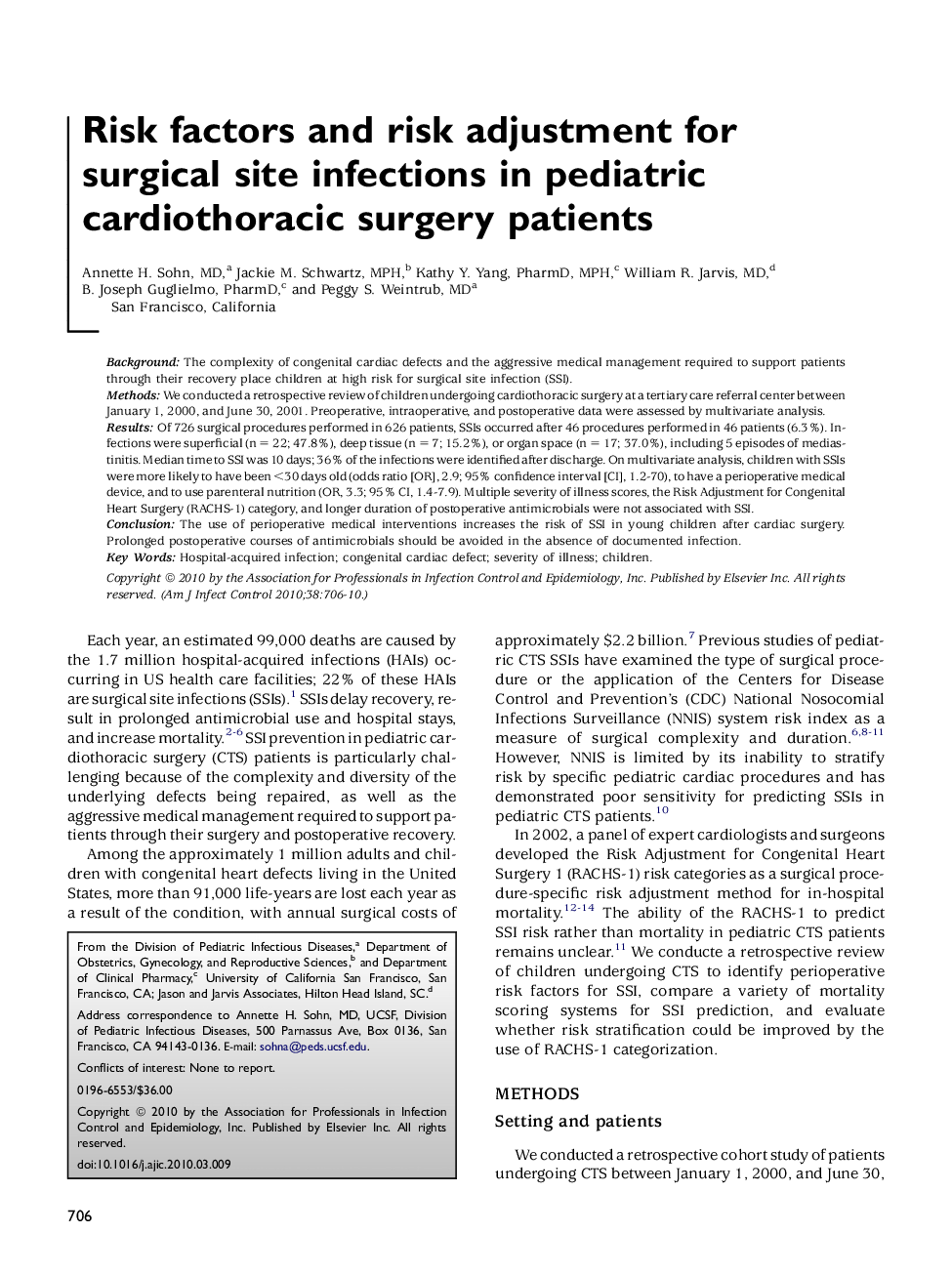| Article ID | Journal | Published Year | Pages | File Type |
|---|---|---|---|---|
| 2639253 | American Journal of Infection Control | 2010 | 5 Pages |
BackgroundThe complexity of congenital cardiac defects and the aggressive medical management required to support patients through their recovery place children at high risk for surgical site infection (SSI).MethodsWe conducted a retrospective review of children undergoing cardiothoracic surgery at a tertiary care referral center between January 1, 2000, and June 30, 2001. Preoperative, intraoperative, and postoperative data were assessed by multivariate analysis.ResultsOf 726 surgical procedures performed in 626 patients, SSIs occurred after 46 procedures performed in 46 patients (6.3%). Infections were superficial (n = 22; 47.8%), deep tissue (n = 7; 15.2%), or organ space (n = 17; 37.0%), including 5 episodes of mediastinitis. Median time to SSI was 10 days; 36% of the infections were identified after discharge. On multivariate analysis, children with SSIs were more likely to have been <30 days old (odds ratio [OR], 2.9; 95% confidence interval [CI], 1.2-70), to have a perioperative medical device, and to use parenteral nutrition (OR, 3.3; 95% CI, 1.4-7.9). Multiple severity of illness scores, the Risk Adjustment for Congenital Heart Surgery (RACHS-1) category, and longer duration of postoperative antimicrobials were not associated with SSI.ConclusionThe use of perioperative medical interventions increases the risk of SSI in young children after cardiac surgery. Prolonged postoperative courses of antimicrobials should be avoided in the absence of documented infection.
